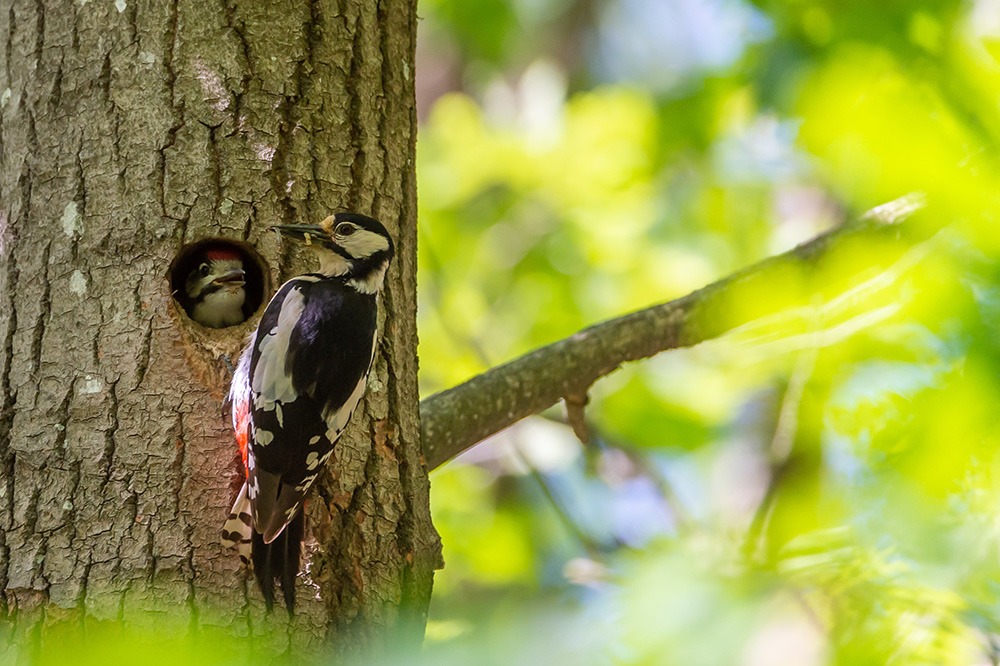Free UK delivery when you spend over £30
Free UK delivery when you spend over £30

It is coming up to the time of year when fledglings are encouraged to make their own way out of the nest. You may see the remains of an egg shell or even come across a juvenile bird making its first attempt at flight. But what should you do if you come across a baby bird in apparent trouble on the ground?
It’s a natural instinct to want to help the baby bird as they are very vulnerable to predators and the environment without the close help of their parents. However, picking up that bird to help it may not be the correct decision and it depends on a number of factors. Afterall, the baby bird’s parents are usually in a much better position to look after it.
So, if you’ve stumbled across a baby bird on the ground, first you must determine if it is a baby in need of aid. Many songbird fledglings leave the nest 2-5 days before they can fly, while the parent birds are still feeding and caring for them. Finding out if the bird is a hatchling or fledgling will determine your next course of action.
A fledgling will have almost fully formed feathers though the wings and tail may be short, and it will be able to fly or flutter short distances. If this is the case, fledglings do not typically require more than minor intervention from worried bystanders.
A hatchling, on the other hand, is much younger and could need assistance. Hatchlings may appear bald or only have tufts of feathers, they are much smaller and do not have nearly as much energy as fledglings. These very young birds cannot fly, and may not even have their eyes open. Hatchlings or nestlings may have fallen out of the nest and the parents may return it there. You should move it to a safe place and observe it to see if the parents are there to help it.
Upon noticing a baby bird, make sure to observe it closely. Energetic and active birds are likely to be fine left on their own, however, weaker and less energetic birds may need help. No matter if they are hatchlings or fledgling birds, if they have obvious signs of injuries such as wounds or bent wings they will most likely require help.
If the bird you find is injured, near both dead parent birds or one that has been clearly abandoned then it may be appropriate to intervene. Nature can be cruel, however, and the baby bird may have been intentionally thrown out of the nest. When a baby bird is too weak to care for, parents reject the bird to focus on the healthy chicks. Returning the bird to its nest will most likely end in the baby bird being thrown out of the nest again.
The younger the bird the less chance of survival it has away from its parents. We highly recommend not disturbing the nest and to intervene as little as possible. However, as discussed above, if you do decide the baby bird needs assistance follow our tips below.
You’ll want to reduce stress as much as possible by avoiding excessive handling, loud noises, or unfamiliar conditions. Try to keep them close to where they were found in case the parent birds return.
Always wear gloves when handling birds as even baby birds can carry mites, lice, ticks, bacteria, and other unpleasant parasites that can be transferred to humans. After handling a bird, wash your hands thoroughly with soap and warm water.
We know you’re trying to help the bird, but giving any food or drink could be very harmful to the baby bird. Juveniles have very specific dietary requirements and are fed every 3-4 hours in the wild. Feeding a baby bird the incorrect food could lead to choking or malnourishment. We suggest you either wait for the parents to return or contact your local rescue centre for help.
The national charities that help advise on injured wildlife include:
